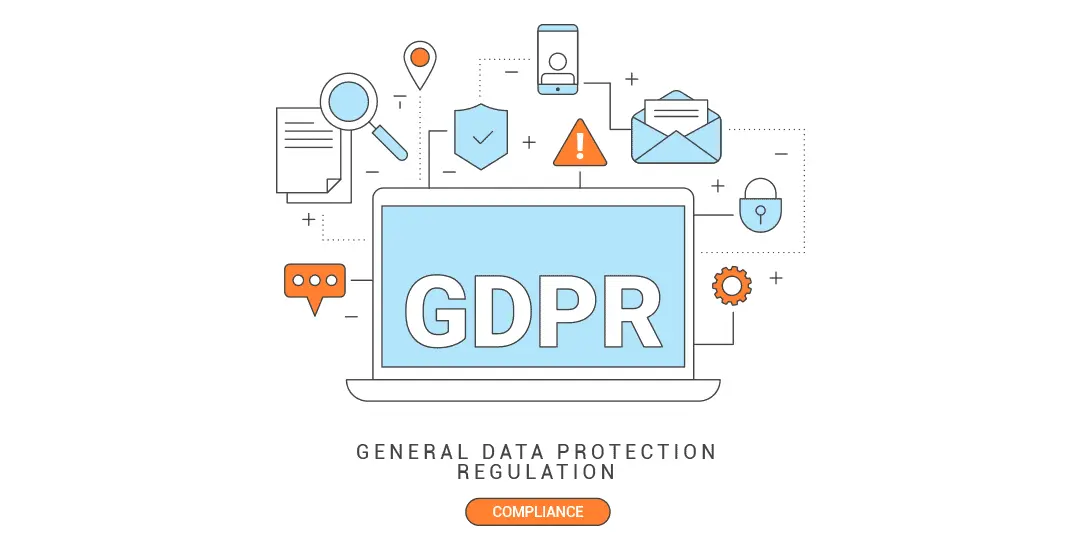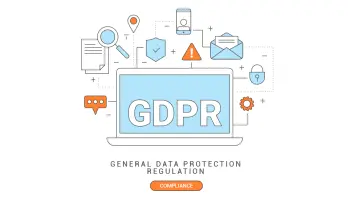Is Google Analytics GDPR compliant?

Over many years, Google has had numerous lawsuits related to privacy, advertising, and intellectual property. To tackle issues of this nature, the company’s team of legal experts has grown substantially in the last few years. One of the recent legal conflicts is connected to Google Analytics and GDPR – the General Data Protection Regulation. GA is one of the most popular tools for website analytics, whereas GDPR has become the cornerstone of privacy laws in the European Union. The conflict between the two means that the use of Google Analytics could be considered illegal throughout the EU or its individual states. This would be a blow not only to Google itself, but also to many businesses that regularly use Google Analytics.
A brief outline of Google Analytics and GDPR
Google Analytics, formerly named Universal Analytics, is a free service that is used for tracking and reporting data on website traffic. It is often one of the core pieces of software used by marketers and SEO (Search Engine Optimization) specialists, offering a lot of useful data that can be used to improve traffic. The solution has been on the market since 2005, with frequent improvements across many years. The fact that it has been constantly developed for such a long time and is free of charge makes it the go-to data collection and analytics tool for many companies.
The General Data Protection Regulation (GDPR) is a 100+ pages long set of laws aiming at the protection of data and privacy in the European Union. The document was implemented in 2018, and has changed many aspects of processing personal data, for example, the management of cookies, IP addresses, and the rules for tracking users online. The introduction of GDPR had a great impact on the EU’s cyber landscape and every online platform and piece of software that processes user data had to adapt.
How Google Analytics violates GDPR
One major issue between the use of Google Analytics and GDPR compliance is the fact that user data is stored on US servers, and Google itself has to follow US laws. In short, US laws require Google to transmit user information to US authorities that have different laws than the EU. This goes against EU regulations, specifically Article 44 of the GDPR – General principle for transfers. You can find art. 44 here.
Another problem is with IP anonymization and unique user IDs. Knowing an IP and UID can lead to the identification of a natural person.
So far, the data protection authorities (DPAs) of Austria, Italy, Denmark and France have issued statements that, in its default configuration, the use of Google Analytics is illegal based on the provision of EU’s GDPR, and there are reasons to believe that other countries of the Union will come to a similar conclusion in the future if nothing changes. The relevant authorities in Norway and Liechtenstein have already voiced their concerns as well.
Any hopes for compliance?
There are a number of configuration options that have to be changed in order to make Google Analytics more GDPR friendly, but the maintenance costs and reduced capabilities of the new setup will make it an inefficient choice for most businesses. For the time being, until laws change or new updates are rolled out that would make Google Analytics GDPR compliant, it might be best to use a suitable, GDPR-compliant alternative.
Is there any hope for Google Analytics GDPR compliance? Indeed, there is. Earlier in 2022, the groundwork was prepared for Privacy Shield 2.0, which is supposed to facilitate the flow of personal data from the EU to the US, and on October 7th 2022 president Joe Biden signed an executive order that helps push the matter forward.
Conclusion
The recent rulings of DPAs of several EU member states leave no doubt that Google Analytics violates the provisions of GDPR. US and EU authorities are working on finding a solution to this issue, but no clear dates have been provided so far. However, it is in the best interest of both the US and the EU to come to an agreement on the matter as soon as possible so businesses can use the software without the fear of being penalized, and let’s not forget that Google also wouldn’t want to lose a large portion of its user base.











